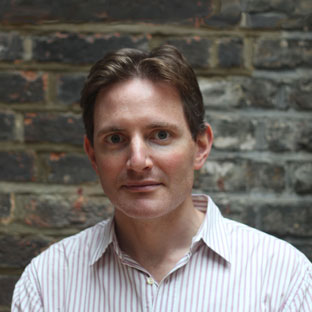Last week I went to an RSA lecture by Sir Lawrence Freedman, global guru on strategy. He was there to talk about his book on the History of Strategy from the beginning up to the modern day.
It was a great lecture and one that makes you want to buy the book at the end of it. However, as I spied the stack of tomes outside the Great Room my enthusiasm quickly drained, at 768 pages it’s not for the faint hearted. I added it to my ‘books I’ll read at some point in the future when I’m sure I’ll have lots more time’ and headed back to my desk.
People don’t tend to think enough in advance about what to do if their strategy fails
While talking about the History of Strategy he also gave some insights into what he had learnt. Two of these were that people don’t tend to think enough in advance about what to do if their strategy fails and that people tend to think of a strategy as aiming to achieve a goal – win the war, become the top selling product, win the election – and don’t spend enough time thinking about what comes next.
While they might seem obvious when stated it immediately bought to mind many examples where people had failed to do this. The Lib Dems strategy at the last election was to win as many seats in parliament as possible. If they had put more thought into what might come next, such as forming a coalition, they might have been more careful about making promises they couldn’t keep such as on student tuition fees. Last week-end Harriet Harman made a plea to Labour colleagues not to think about coalition after the next general election but concentrate on all-out victory. If this is a rallying cry to inspire the troops, fine, if it’s what she really thinks then she could live to regret it.
People tend to think of a strategy as aiming to achieve a goal and don’t spend enough time thinking about what comes next.
If Gordon Brown had thought more about what would happen if his strategy didn’t work, he might not have banged on quite so much about the ‘end of boom and bust’. The coalition would have done well to think more in advance about what would happen if the Universal Credit Scheme proved more difficult to implement than they had thought and might have started with the slow roll-out they’re now being forced to adopt.
We’re going through our own strategic review at the RSA. Given we’re already spending a lot of time talking about it, I’m not sure my colleagues would be too happy if I suggested we set aside time to discuss what would happen if it failed! The talk set my mind wondering what happens if certain parts of the review aren’t as successful as they could be (fuzzy aims, partial staff buy-in, unclear management structures etc) but has only made me think more about how to ensure they do work rather than planning for the worst.
One thing the strategic review is aiming to achieve is to ensure we take a longer term view so that we think beyond delivering the next project or funding the next fellow to a more extended, coherent set of overall change aims. This is what Freedman suggests and it is challenging to think further ahead with the added unknowns and complexities that each step further into the future entails. However the benefit of this longer term thinking to the present has been enormously beneficial for us, irrespective of the eventual outcome.
So one out of two isn't too bad, as the saying doesn’t go. And perhaps I will suggest discussing what happens if our strategic review fails when our executive team meet on Monday, if only to see their reaction.
Oliver Reichardt is Director of Fellowship at the RSA, you can follow him @OliverReichardt
Related articles
-
The 30th anniversary of the Velvet Revolution
Alastair Merrill
Alastair Merrill FRSA reflects on the Velvet Revolution, which was key to freeing Czechoslovakia from Communist totalitarianism.
-
Fighting Talk: Trump and Xi’s bitter words
Duncan Bartlett
Duncan Bartlett FRSA is the Editor of Asian Affairs magazine and a former BBC Correspondent; here he offers his perspective on the war of words.
-
Managing Up Ain’t What It Used to Be
Avivah
Ageing populations are becoming more and more prevalent in Western nations. How prepared are we to deal with what this entails?


Be the first to write a comment
Comments
Please login to post a comment or reply
Don't have an account? Click here to register.